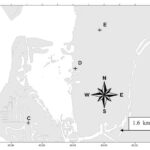Docosahexaenoic acid (DHA) is a vital omega-3 fatty acid that plays an indispensable role in the healthy development of the brain and maintaining optimal cognitive function. Its significance is underscored by its high concentration within brain phospholipids. Despite its abundance in these crucial brain components, the brain cannot produce DHA on its own. Instead, it must be transported into the brain across the blood-brain barrier. For a long time, the precise mechanisms governing DHA uptake in the brain have remained unclear.
Groundbreaking research has now identified Mfsd2a, a member of the major facilitator superfamily and previously classified as an orphan transporter, as the primary transporter responsible for DHA uptake into the brain. Mfsd2a exhibits exclusive expression in the endothelium of the blood-brain barrier within micro-vessels, highlighting its specialized function at this critical interface.
To understand the impact of Mfsd2a, scientists conducted lipidomic analysis on mice lacking Mfsd2a (Mfsd2a-knockout mice). The results were striking: these mice displayed significantly reduced levels of DHA in the brain. This DHA deficiency was accompanied by neuronal cell loss, particularly in the hippocampus and cerebellum, brain regions crucial for memory and motor control. Furthermore, the Mfsd2a-knockout mice exhibited cognitive impairments, pronounced anxiety, and microcephaly, underscoring the profound consequences of disrupted DHA transport.
Intriguingly, cell-based studies revealed that Mfsd2a facilitates DHA transport not as an unesterified fatty acid, but in the form of lysophosphatidylcholine (LPC). This transport mechanism is sodium-dependent, adding another layer of specificity to the process. Notably, Mfsd2a demonstrates a preference for common plasma LPCs carrying long-chain fatty acids, such as LPC oleate and LPC palmitate. However, it does not efficiently transport LPCs with acyl chains shorter than 14 carbons, indicating a specific structural requirement for its substrates. Further investigation pinpointed the phosphor-zwitterionic headgroup of LPC as essential for transport, highlighting the precise molecular interactions involved.
Confirming the physiological relevance of these findings, experiments on Mfsd2a-knockout mice demonstrated a marked reduction in the uptake of labeled LPC DHA, and other LPCs, from the plasma into the brain. This crucial observation definitively establishes Mfsd2a’s essential role in mediating brain uptake of DHA and other LPCs.
These discoveries unveil a previously unrecognized and vital physiological function of plasma-derived LPCs in supporting brain growth and function. The identification of Mfsd2a as the major transporter for DHA, specifically as LPC, represents a significant advancement in our understanding of brain nutrition and opens new avenues for exploring therapeutic strategies related to brain health and cognitive disorders linked to DHA deficiency. The intricate mechanism of Transportar 3 – Mfsd2a – underscores the complexity and specificity of nutrient delivery systems critical for brain function.

